The following are excerpts from this book:
"December came to an end with no plan for action on the amendment assured. This left us January and February only before the session would end. The President had not yet won the necessary 2 votes. We decided therefore to keep a perpetual fire to consume the President's speeches on democracy as fast as he made them in Europe.
"And so on New Year's Day, 1919, we light our first watchfire of freedom in the Urn dedicated to that purpose. We place it on the
sidewalk in a direct line with the President's front door. The wood comes from a tree in Independence Square, Philadelphia. It burns gaily. Women with banners stand guard over the watchfire. A bell hung in the balcony at headquarters tolls rhythmically the beginning of the watch. It tolls again as the President's words are tossed to the flames. His speech to the workingmen of Manchester; his toast to the King at Buckingham Palace: "We have used great words, all of us. We have used the words `right' and `justice' and now we are to prove whether or not we understand these words;" his speech at Brest; all turn into ignominious brown ashes.
"The bell tolls again when the watch is changed. All Washington is reminded hourly that we are at the President's gate, burning his words. From Washington the news goes to all the world."
Despite harassment from young boys, old men, and police officers, the fires continued to burn. Arrests were made, but as they had broken no law, there were no charges which could be brought against them.
"But a thorough research was instituted and out of the dusty archives some one produced an ancient statute that would serve the purpose. It prohibits the building of fires in a public place in the District of Columbia between sunset and sunrise. And so the beautiful Elizabethan custom of lighting watchfires as a form of demonstration was forbidden!"
When more women were arrested, a careful examination of the almanac determined that they had violated the above law.
"The judge pleads almost piteously with them not to go to jail at all, and says that he will put them on probation if they will promise to be good and not light any more fires in the District of Columbia. The prisoners make no promise. They have been found guilty according to the almanac and they file through the little gate into the prisoners' pen.
"Somehow they did not believe that whether the sun rose at 7:26 or 7:28 was the issue which had decided whether they should be convicted or not, and it was not in protest against the almanac that they straightway entered upon a hunger strike."
"And so, throughout January and the beginning of February, 1919, the story of protest continued relentlessly. Watchfires-arrests-convictions-hunger strikes - release - until again the nation rose in protest against imprisoning the women and against the Senate's delay. Peremptory cables went to the President at the Peace Conference, commanding him to act."
"The suffrage score now stood as follows: One vote lacking in the Senate, 15 days in which to win it, and President Wilson across the sea! The Democrats set February 10 as the date on which the Senate would again vote on the amendment, without any plan as to how the last vote would be won.
"We were powerless to secure the last vote. That was still the President's problem. Knowing that he always put forth more effort
under fire of protest from us than when not pressed, we decided to make as a climax to our watchfire demonstrations a more
drastic form of protest. We wanted to show our contempt for the President's inadequate support which promised so much in words and which did so little in deeds to match the words.
"And so on the day preceding the vote we burned in effigy a portrait of President Wilson even as the Revolutionary fathers
had burned a portrait of King George."
"As the marchers massed their banners, and grouped themselves about the urn, a dense crowd of many thousand people closed in about them, a crowd so interested that it stood almost motionless for two hours while the ceremonies continued. The fire being kindled, and the flames leaping into the air, Miss Sue White of Tennessee and Mrs. Gabrielle Harris of South Carolina dropped into the fire in the urn a figure of President Wilson sketched on paper in black and white -a sort of effigy de luxe, we called it, but a symbol of our contempt none the less."
"Thereupon the police fell upon the ceremonies, and indiscriminate arrests followed. Women with banners were taken; women without banners were taken. Women attempting to guard the fire; women standing by doing nothing at all; all were seized upon and rushed to the patrol."
"The following morning, February 10th, saw two not unrelated scenes in the capital. Senators were gathering in their seats in
the senate chamber to answer to the roll call on the suffrage amendment. A few blocks away in the courthouse, thirty-nine women were being tried for their protest of the previous day.
"There was no uncertainty either in the minds of the galleries or of the senators. Every one knew that we still lacked one vote."
Their time had not yet come, but the National Woman's Party was far from giving up!
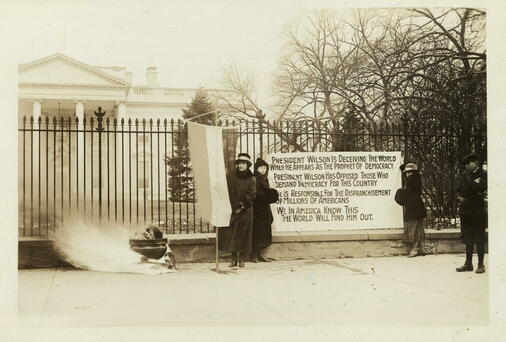
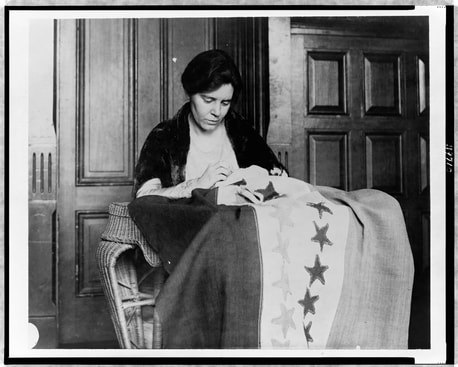
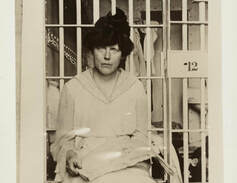
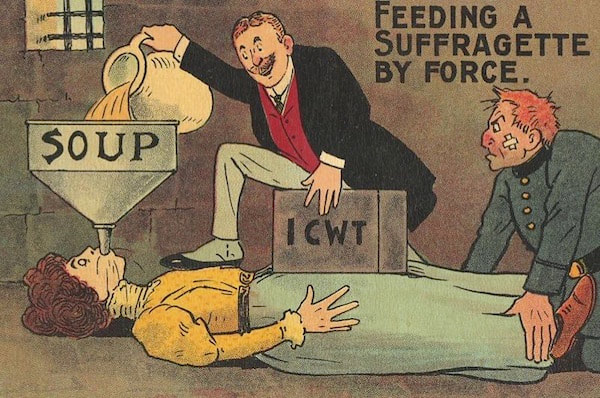
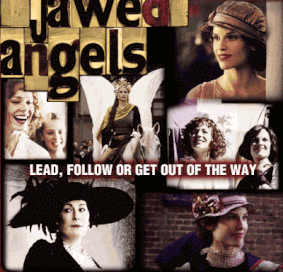
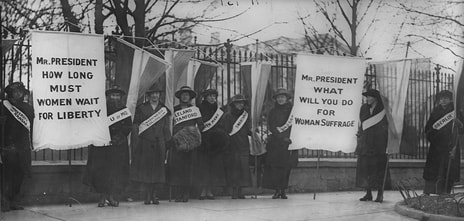
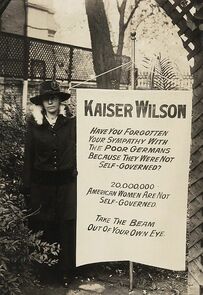
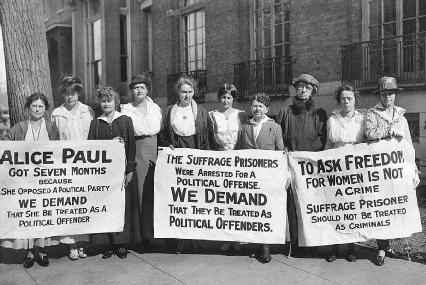
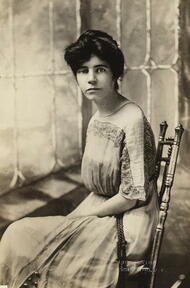

 RSS Feed
RSS Feed